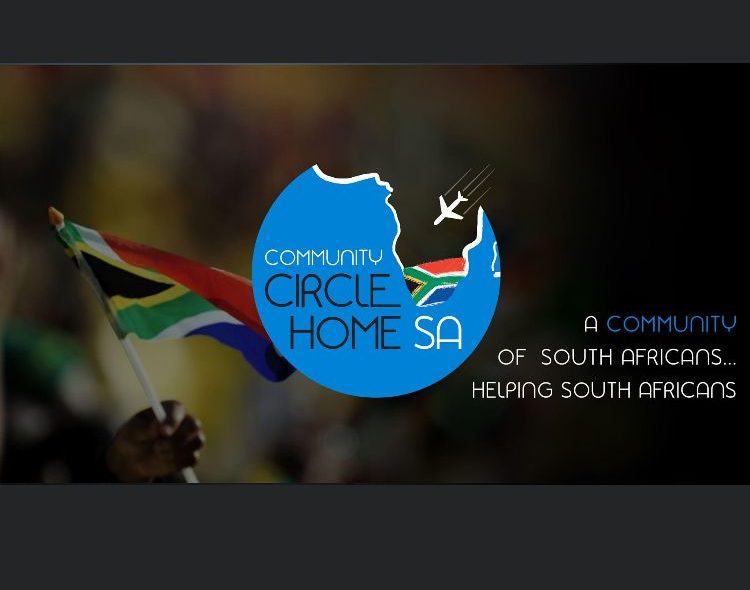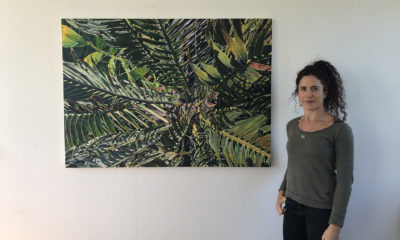
Lifestyle

Building a circle of support in the travel maze
While South Africa’s borders remain open during the current stage of the pandemic, other countries are essentially “closing our borders for us” by making it very hard for South Africans to travel, or for people to visit South Africa.
“So you may get ‘out the door and down the passage’, but then you’ll find a gate that only a few people can get through. The rest of the world has been spooked by the South African variant [of COVID-19], and they are shutting their doors to South Africans.”
This is the assessment of Kim Kur, a Johannesburg interior architect who founded and manages the Facebook group “Community Circle Home SA”. It’s a non-political platform for South Africans to help other South Africans who are stranded away from home because of the COVID-19 crisis.
The group was started on 8 November, and now has 6 300 members from 96 countries. It’s growing by about 50 members a day.
Kur was a volunteer for “Home Away from Home”, a similar platform that closed when South Africa’s borders reopened. However, she felt there was still a need for such a community, and began her new page as a service to others on the very same day.
“I realised people still have ties to South Africa, they want to be allowed to enter their home country, and they will go to great lengths to do that. People also want to help each other, even if they left South Africa decades ago. We have members who will drop everything to help someone they’ve never met, to share the information they know that this person needs.
“I’ve also seen a lot of ‘paying it forward’ – once someone is helped, they offer to help someone else, even if it’s by offering skills. The other day, two South Africans helped a woman get food to her son, and they were all strangers.
“With travel regulations, you are feeling around in the dark. Everyone is panicking but eventually someone finds the light switch, and it gets a little brighter. But then, without warning, the regulations change, and it all starts again. People are desperate to get to jobs, funerals, or to see family members before they die,” she says.
“People are battling psychologically with the sense of being locked out of their country. Before, it was mostly about being able to afford a repatriation flight, and there were a couple of hoops to jump through. Now, countries aren’t allowing South Africans to fly in. People get locked out or even deported. Money gets lost or wasted. We’ve had members who become suicidal, and we have psychologists in different time zones on hand to help them. It’s very real.”
At the moment, many of the questions on the group are about quarantine in the United Kingdom. Every day, people ask what airlines are flying. There are many queries about flights that have been suspended or postponed, and what visas are allowed.
As a busy professional with a full-time job, a husband, and two young children, it’s astounding that Kur has so much time and energy to devote to this cause, but for her, it’s worth it.
“Being instrumental in making sure someone gets to see their mother before she dies, or to reunite with their sibling, or get back to South Africa if there’s been an accident, you can’t put a price on that,” she says.
She’s never worked in the travel industry or in community management before, but she has just “jumped right in”. She runs the page on her own, and relies heavily on travel agents, officials, pathologists, and virologists, a network around the world, and group members themselves to help desperate travellers in the ever-changing maze that is air travel under COVID-19.
“When people panic, I often tell them to take a strategic pause while we feel around, speak to government officials overseas, and help them. Sometimes you have to get your hands dirty. But we won’t break any laws or help anyone break any laws.
“Also, with [the department of] home affairs being closed, it’s causing massive issues. We had a couple from England who needed to get here as her father was dying. She managed to see him and she had to give permission to turn off the machines. Then, while winding up his estate, her handbag was stolen, including all their certified documents to travel back to the United Kingdom. Within two days, we had organised both her British and his South African emergency documents, and got a travel agent to move their flight. The stress of travel went away, and she could focus on her father’s estate and her grief.”
Many travel agents whose livelihoods have been decimated give advice on the group, but Kur encourages them to charge for their services if the query gets taken further.
Kur also wanted to make her group a “safe space”. “There are many ‘Saffa’ groups online, but there is a lot of misinformation, speculation, and nastiness. It seems like people on many of these groups are looking for ways to trip each other up. That’s the antithesis of what I want on this group. We allow only information that has been verified.
“We don’t allow anything to be shared that is speculative – even if it’s a newspaper article. We allow it only if it includes actual government regulations. We ask people to wait for information, work out what it means, understand it, and then deal with it as a community.
“There have been many success stories and hardly anyone we couldn’t help. We had a woman in Yemen who needed to come back to South Africa to escape her abusive husband, and we got her and two of her children to safety in South Africa. But then she went back as she missed the kids that were still there. There’s only so much you can do. But when she needs our help, we will help her again.”
While many people experience a great deal of relief when they finally make it to where they need to go, “we also see a lot of sadness because when people leave, they don’t know when they’ll be able to return”. Kur is also witnessing many leaving or returning because of job losses. She recently dealt with a man who needed to get to South Africa because his brother committed suicide. “It’s frightening what’s going on behind the scenes,” she says.
Still, she remains positive and motivated. “Even after travel restrictions ease, this group won’t end. There’s never going to be a South African that doesn’t need help, and that’s what we’re there for.”










